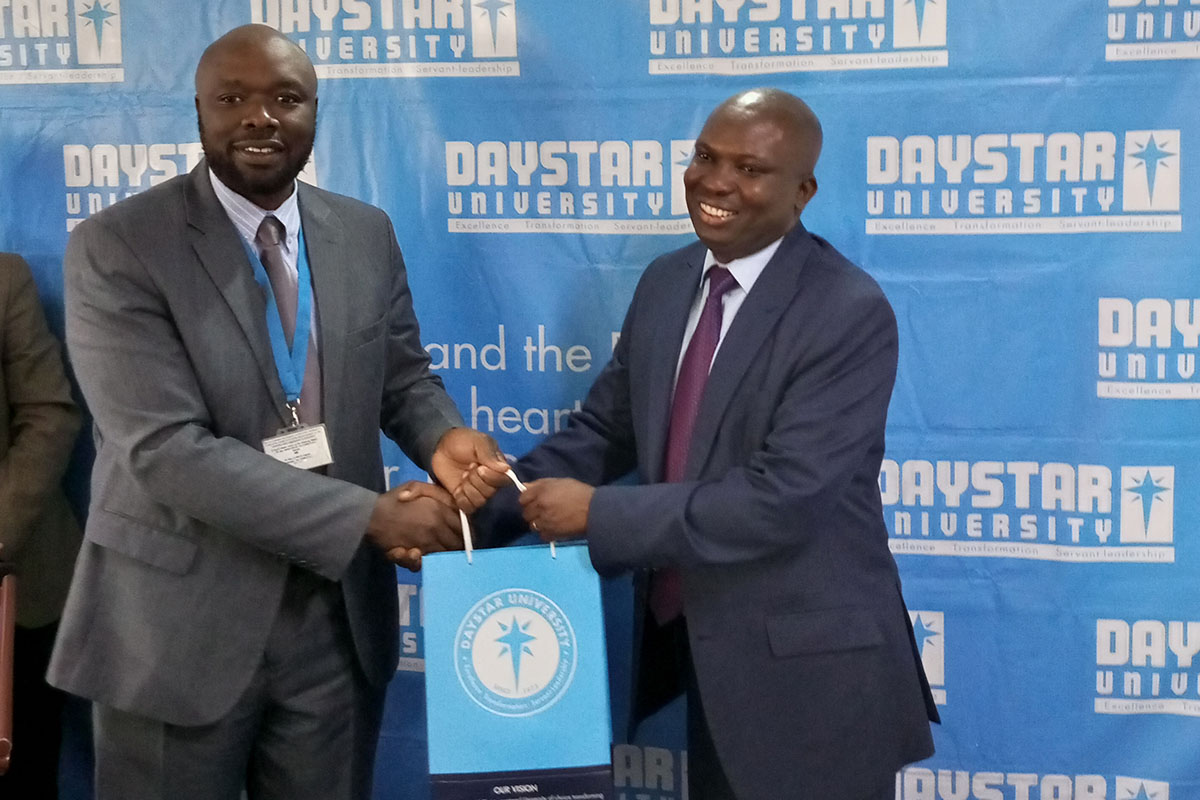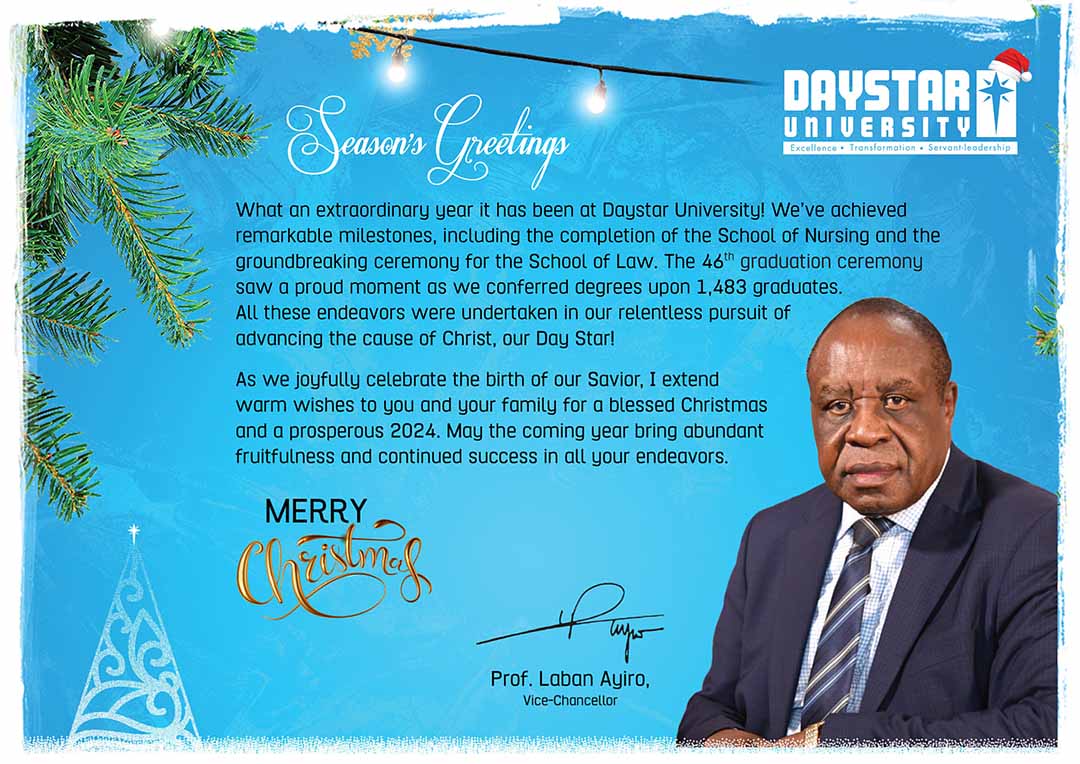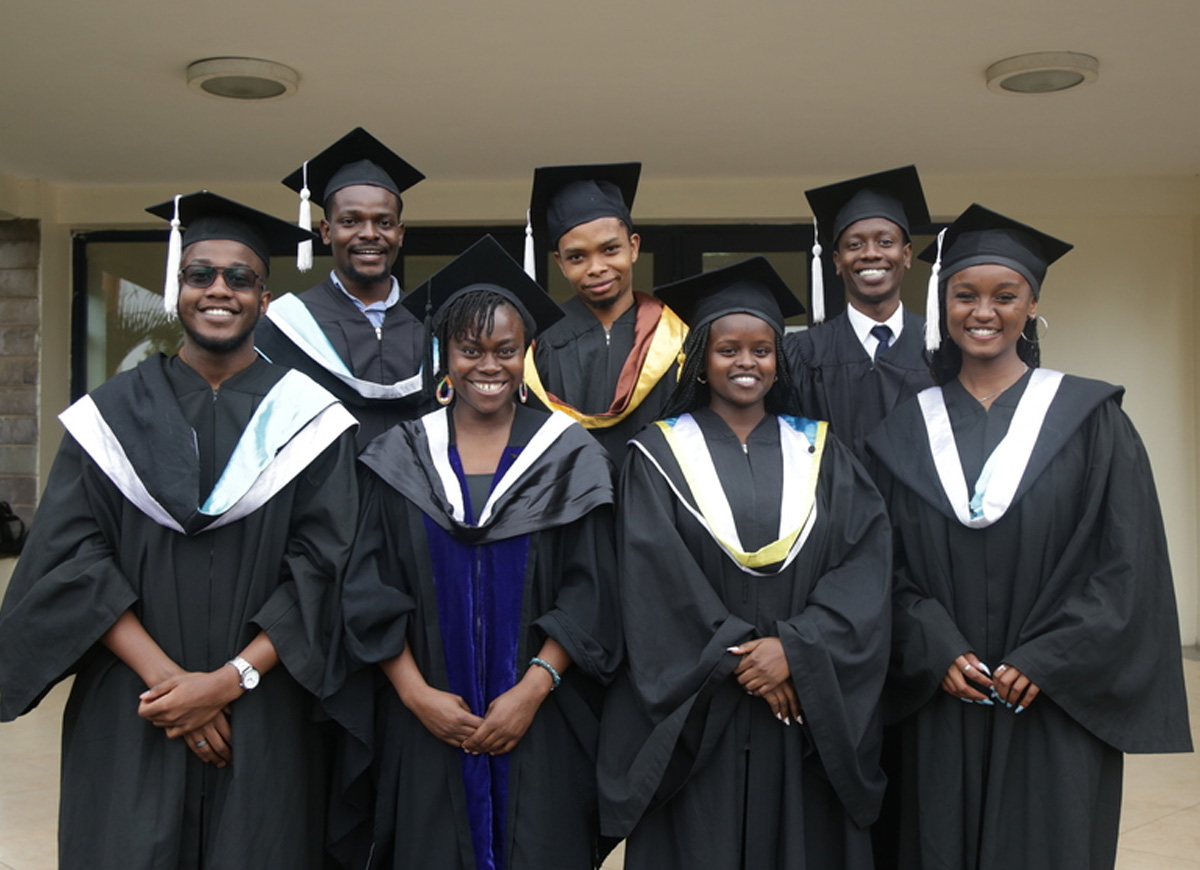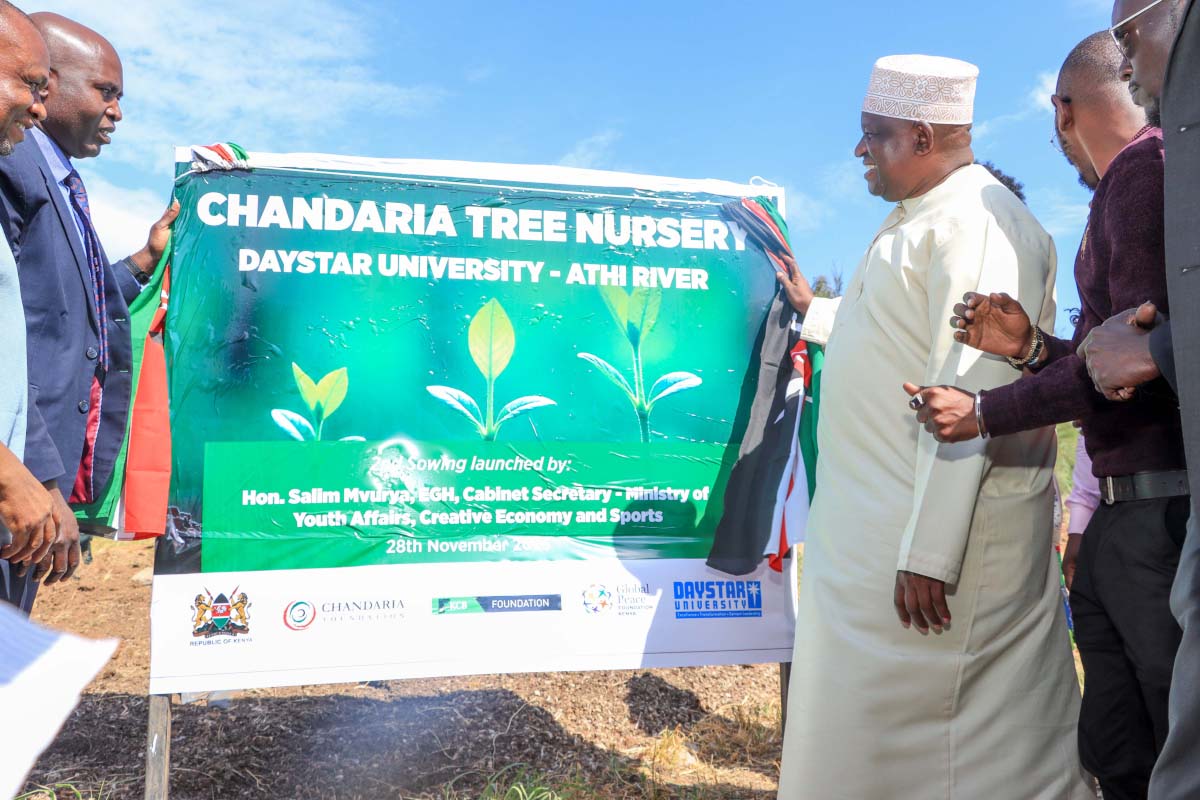Daystar University through the School of Business and Economics held a public lecture on the Proposed Finance Bill 2023-2024.
Running under the theme: “Tax and the Economic Implication of the Proposed Finance Bill 2023-2024,” the event was held at the University’s Nairobi Campus on May 17, 2023.
Representing the University was the Deputy Vice-chancellor Academic Research and Student Affairs, Prof. Faith Nguru, Principal Nairobi Campus, Prof. Michael Bowen, Dean, School of Business and Economics, Dr. Evans Amata, Faculty and students.
The DVC- ARSA, Prof. Faith Nguru was present to welcome the guests to Daystar University and open the public lecture.
The two main speakers for the day were the Vice-chairman, Institute of Certified Public Accountants of Kenya, CPA Phillip Kakai and Principal Nairobi Campus and Capital Markets Authority Board Member, Prof. Michael Bowen.
CPA Kakai expounded at great length the proposed tax changes and tax implications in the proposed finance bill 2023-2024. Breaking down the proposed bill, he talked about the income tax proposals on immovable property, mining rights, land rights, person and companies, and revealed that taxation of digital assets at gross market value, and exempt trust income provision is now deleted from finance bills.
CPA Kakai also talked about charitable organization transparency enhancement and life exemptions whereby, 5-year limit has been removed from the proposed bill, and income of post-retirement has been exempted. He also revealed that 100% investment deduction will only apply to buildings and machinery used in manufacture and hotels.
CPA Kakai further discussed the VAT act proposal pointing out that white fuel tax will double from 8% to 16%, and that suppliers of imported digital services will not be required to meet KES 5M registration threshold.
Excise duty act proposal was not left behind during the discussion, here, only imported articles of plastic are subject to exercise duty.
Further, he expounded on global inflation rate, which he said involves a series of compounding issues such as rising energy and food prices and fiscal instability in the wake of the pandemic and consumer insecurity among others. CPA Kakai was categorical that the Russian and Ukraine war has contributed to increase in oil prices in the country. Among other things
On his part, Prof. Michael Bowen explained the background and context of the bill noting massive investment in infrastructure over the last 20 years such as the Standard Gauge Railway, road bypasses and rural roads that have led to accumulation of debt.
Other factors include the Coronavirus pandemic that depressed the economy besides the country having come from a political season where politics was the focus rather than the economy. The drought experienced most of year 2022 made things worse for the economy.
According to Prof. Bowen, the current Finance Bill seeks to deal with these contextual setting seeking to raise funds to pay for accumulated debt and remain with some money for recurrent and development budget. Clearly, the bill seeks to broaden the tax base by bringing in a wider section of the nation to contribute to its development.
The event ended at noon and participants went home more enlightened on the proposed Finance Bill 2023 2024.
 Daystar University
Daystar University















John Doe
Jan 08, 2021 14:41 pmLorem ipsum dolor sit amet, consectetur adipiscing elit. Etiam vitae odio ut tortor fringilla cursus sed quis odio.
ReplyHelen Doe
Jan 08, 2021 14:41 pmMaecenas tempus, tellus eget condimentum rhoncus, sem quam semper libero, sit amet adipiscing sem neque sed ipsum.
ReplyAnna Doe
Jan 08, 2021 14:41 pmCras ultricies mi eu turpis hendrerit fringilla. Vestibulum ante ipsum primis in faucibus orci luctus et ultrices posuere cubilia.
Reply